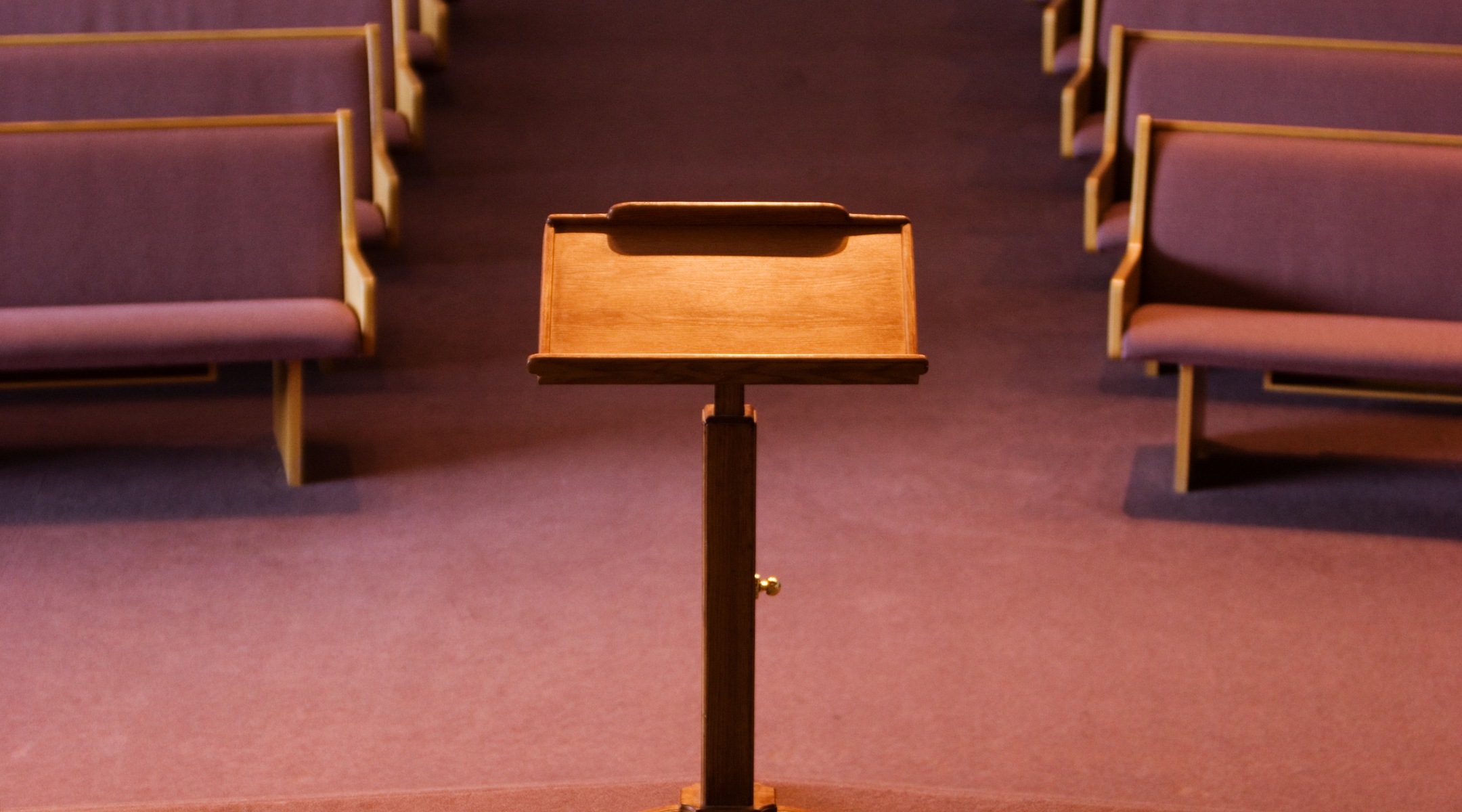(JTA) — Dozens of American rabbinical students have issued a public letter accusing Israel of apartheid and calling on American Jewish communities to hold Israel accountable for the “violent suppression of human rights.”
The letter comes as Israel is engaged in an intense exchange of fire with Hamas, the militant group that controls the Gaza Strip, in which nine Israelis and more than 100 Palestinians have died. Israel is facing fierce criticism from progressive politicians and activists for its airstrikes on Gaza in response to Hamas rockets. Alongside the bombing, Israel has been shaken by days of clashes between Arabs and Jews across the country.
The letter is unusual for its stark criticism of Israel and the Jewish community — a community that the signatories will represent upon ordination. It is also a landmark collaboration across American seminaries: Nearly 90 rabbinical students had signed by Friday morning, representing a significant portion of students who are enrolled now in the country’s non-Orthodox rabbinical schools. No students in Orthodox seminaries have signed.
“Our political advocacy too often puts forth a narrative of victimization, but supports violent suppression of human rights and enables apartheid in the Palestinian territories, and the threat of annexation,” the letter says. “How many Palestinians must lose their homes, their schools, their lives, for us to understand that today, in 2021, Israel’s choices come from a place of power and that Israel’s actions constitute an intentional removal of Palestinians?”
Frankie Sandmel, a rabbinical student at Hebrew College, a nondenominational school in suburban Boston, told the Jewish Telegraphic Agency that the letter was intended as an act of caring, but also a call to change policy regarding Israel.
“We wanted it to be clear that we deeply care about all of the people who live in that region and that every single person is hurting and terrified,” Sandmel said. “And we’re able to hold that and also hold Israel accountable.”
The letter argues that while many American Jewish institutions have been engaged in reckoning with racism and injustice in the past year, many of them have been silent on issues of equity in Israel and between Israel and Palestinians. The situation represents a “spiritual crisis,” it concludes.
“Our institutions have been reflecting and asking, ‘How are we complicit with racial violence?’ the letter says. “And yet, so many of those same institutions are silent when abuse of power and racist violence erupts in Israel and Palestine.”
The letter calls for education in the Jewish community that teaches “the messy truth” about Israel, as well as changes to how Jewish institutions fund Israeli causes and advocate for Israel politically.
“When we vote, we can vote for leaders who won’t continue paying lip service to peace while funding violence,” the letter says. “We can use our position as citizens of Israel’s biggest benefactor to push to regulate and redirect funds in equitable ways that promote a peaceful and just future.”
The letter does not mention Hamas or Israeli civilians. Sandmel said the students had decided to focus on Israel in the letter rather than address violence and death on both sides of the conflict because of American Jews’ unique stake in Israel.
“Why not call out Hamas?” Sandmel said. “I can’t speak for the group. For myself, as an American Jew who has never lived in Gaza or the West Bank, I don’t feel like I have ground to stand on to try to influence how Palestinians respond to oppression. I do have the ability to speak to the American Jewish community that I am hoping to lead, to look at the ways that we vote and the ways that we give tzedakah and the ways that we educate our communities.”
(Sandmel, who will be ordained next year, is a former intern at T’ruah, the rabbinic human rights group that has been calling for greater scrutiny on the ways that American philanthropic giving reaches right-wing Jewish extremists in Israel.)
For years, many rabbis have seen Israel as a potential third rail for advocacy from the pulpit. The recent Pew Research Center study on American Jews says “several rabbis said they choose their words carefully and try not to unintentionally or unnecessarily alienate people in their congregations, which they know contain both staunch supporters and persistent critics of the Israeli government.”
“One of the concerns we have — and we hear this over and over again from rabbis and community leaders — people are afraid to discuss Israel,” Ethan Felson, then vice president of the Jewish Council for Public Affairs, the umbrella body for Jewish policy groups and Jewish community relations councils, told JTA back in 2011. “People fear for their jobs, their professional lives if they have these conversations.”
The letter offers one sign that the dynamic may be shifting, or at least that many people who are on the verge of entering the rabbinate are less concerned about professional repercussions than about speaking their mind.
“To me, that so many people signed on without this process says both that this is something that this next wave of rabbis feels passionate and clear about and, God willing, that the landscape is changing such that it feels like it’s not as risky,” Sandmel said.
You can see the complete letter and list of signatories here.
JTA has documented Jewish history in real-time for over a century. Keep our journalism strong by joining us in supporting independent, award-winning reporting.






